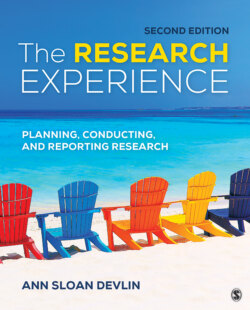Читать книгу The Research Experience - Ann Sloan Devlin - Страница 149
На сайте Литреса книга снята с продажи.
External Validity and Ecological Validity
ОглавлениеA good deal of attention has been paid here to internal validity; let’s turn our attention outward, to external validity and ecological validity (they are not the same). External validity is the ability to apply the results of research more broadly, that is, beyond the sample used in a particular study. Generalizability is a major emphasis of external validity.
External validity: The ability to apply the results of research more broadly—beyond the sample used in a particular study.
Ecological validity: Validity in which the emphasis is on the degree of representativeness of the research to the events and characteristics of real life.
External validity needs to be distinguished from ecological validity. In ecological validity, the emphasis is on the degree of verisimilitude (i.e., lifelikeness) of the research to the events and characteristics of real life. The two concepts overlap in that both relate to situations beyond the immediate research setting, but ecological validity specifically emphasizes the realism or degree to which the situation reflects real life, which is not necessarily the case for external validity.
There is tension between external validity and ecological validity in the sense that when you emphasize the discovery of generalizable principles, experimental control is paramount (Banaji & Crowder, 1989). On the other hand, when you emphasize whether a finding occurs in a particular way in the real world, your concern is with natural settings, which typically lend themselves to reduced experimental control (Neisser, 1978). Different methods are typically associated with external and ecological validity. In the case of external validity, laboratory research is emphasized; in the case of ecological validity, field studies are often the focus. These different strategies suggest that a multimethod may be necessary to understand fully a given research topic (Eid & Diener, 2006).
